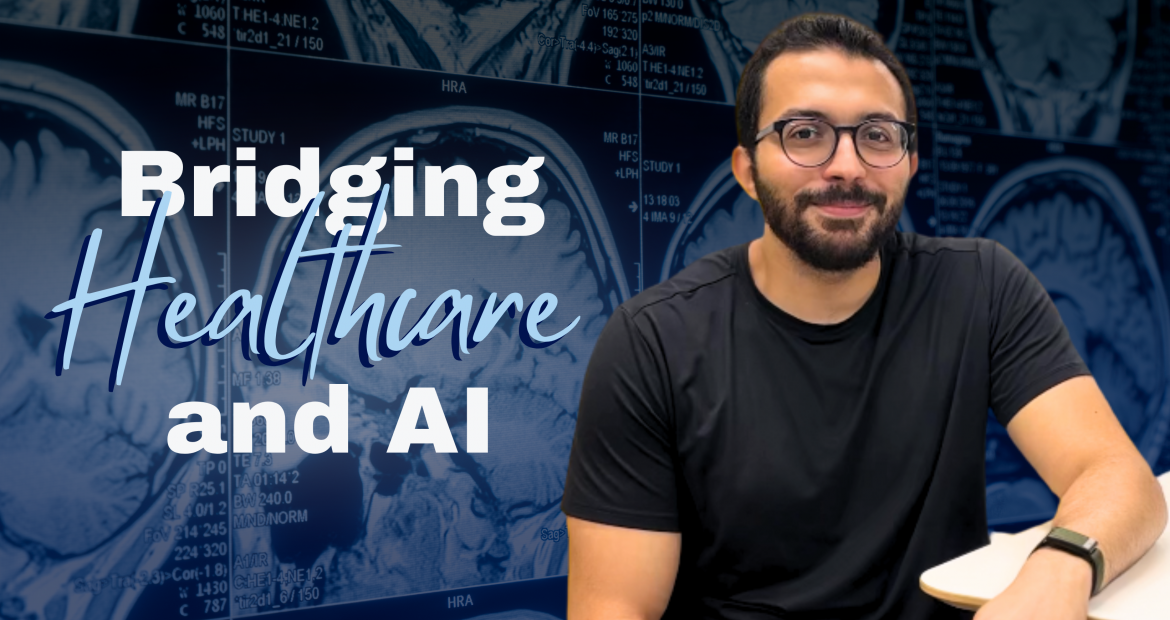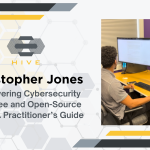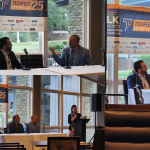LOUISVILLE, KY — At the intersection of healthcare and technology, Omar Emam is building something important—something that could shape the future of clinical practice. An MD graduate from Egypt, Omar joined HIVE as a researcher to explore how artificial intelligence can transform patient care. With plans to apply for residency, his time at HIVE is both a learning journey and a contribution to the field he loves.
“It’s been an interesting journey learning about AI and computer science and trying to bridge the gap between medical care and computer science,” Omar says.
Why AI in Healthcare?
Omar believes that AI is more than just a technological trend—it’s a necessary tool that modern doctors must learn to use. He views AI as a way to reimagine how clinical decisions are made and how data is interpreted in healthcare.
“I believe that AI is just a new tool that will transform the way doctors think about their clinical care and research in a lot of educational activities. Just like any other tool it has to be learn and if you’re not gonna learn this tool you’ll be left behind,” he explains.
For Omar, educating healthcare providers on AI is key—not just to stay current, but to uncover insights from complex data that were once unreachable.
“Now that we have this tool in our hand, we will be able to uncover and discover a lot more.”
His Current Project
At HIVE, Omar is applying his skills to one of the most pressing challenges in medicine: Alzheimer’s disease. The condition is often diagnosed late, after cognitive decline has already taken hold. Omar’s research focuses on changing that timeline.
“The project that I’m working on at the moment has to do with a very popular disease and that is Alzheimer’s disease or dementia.”
Using AI to analyze MRI images and other health data, the goal is to predict who is most at risk before symptoms begin—creating space for earlier intervention and better care.
“If we are successful at developing this model, we’ll be able to save a lot of lives and help a lot of people live much better lives.”
Challenges Along the Way
Of course, breakthroughs don’t come without obstacles. Omar points to two major challenges in the project: the technical demands of image processing, and the interpretability of AI models.
“Some of it is technical relating to image processing, like the size of the image or the resolution of the image or the size of the voxel.”
But the harder challenge, he says, is helping physicians trust AI. Many deep learning models are complex and difficult to explain, making doctors hesitant to rely on them in clinical settings.
“Doctors will be a little bit skeptical in trusting their output… If you can explain that to doctors and they can understand the principle behind how they operate, they will have a little more trust in technology.”
Life at HIVE
For Omar, working at HIVE has been a first-of-its-kind experience—and a meaningful one. It’s his first time working closely with a computer science team, and he’s found real value in the diversity of thought that drives the work forward.
“I really enjoyed the fact that our team is multi-disciplinary… different backgrounds and different levels of experience all contributing.”
He sees this kind of collaboration—not just among disciplines, but across age, experience, and worldview—as essential to building responsible, ethical AI.
“We need to make sure that we are including everybody in the conversation… so that hopefully the biases we have will not be propagated to the AI.”
Looking Ahead
At HIVE, he’s building bridges between healthcare and technology, pushing for collaboration, and making sure that innovation stays human at its core.
His work is a reminder that AI in healthcare isn’t just about algorithms. It’s about people—both the ones building it and the ones it’s meant to serve.
Check the video of the interview on our Instagram by clicking on this link, Omar Emam’s Interview.







